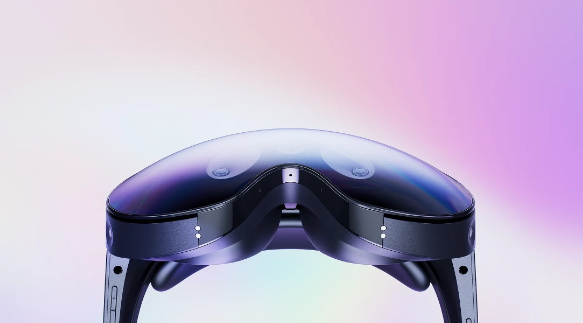
News on December 20, meta Quest Since its launch, the Pro headset has been much discussed for its incomplete support for facial recognition. Especially in virtual reality experiences, when users stick out their tongues in front of a virtual mirror, they will find that this action cannot be accurately captured, thus affecting the overall immersion. In addition, this flaw also limits the expressiveness of users’ expressions when socializing in VR environments.

In response to this issue, meta has recently made important updates. In its latest release, v60, of its Unity and native code software development kit (SDK), Meta has expanded its facial tracking technology. This update highlights the addition of tongue protrusion recognition to the OpenXR extension, which is a direct response to user feedback.
Currently, although meta’s official Avatar SDK has not yet fully adapted to this new feature, as long as the third-party avatar solution is updated to the SDK v60 version, you can quickly enable this "tongue sticking out" function. Independent developer korejan is one of the best. The ALVR (VRFaceTracking) module he developed has achieved breakthroughs on the ALXR platform, which is considered the Virtual Desktop, Steam Link and Quest Link for PC A strong contender for VR streaming solutions. Korejan not only implemented the tongue tracking function in VRChat, but also released a corresponding demonstration video to show the practical application effect of this new feature.
Although Steam Link and Virtual Desktop already support Quest Pro’s original facial tracking function can be used in VRChat, but to implement the tongue tracking function, you need to wait for these applications to be updated to support the v60 version of the SDK. As far as the editor understands, the third-party developers currently on the market are not interested in Quest. The Pro's facial tracking support isn't exactly enthusiastic. One reason is Quest The market sales of Pro are not ideal, which has affected the enthusiasm of developers to a certain extent. While my own Horizon suite fully supports face tracking, standalone apps like VRChat currently only support eye tracking. While some other popular applications such as Rec Room and Bigscreen don’t even have facial or eye tracking capabilities yet. Although Quest Pro's market performance has not met expectations, and me
ta's software support has not weakened. Following previous updates that improved mixed reality performance, this update to the tongue tracking feature once again reflects our commitment to continuous product improvement. This not only demonstrates the importance Meta attaches to user feedback, but also demonstrates the company’s determination to continue to innovate in the field of virtual reality technology.
The above is the detailed content of VR social experience upgrade: Meta Quest Pro launches innovative tongue tracking function. For more information, please follow other related articles on the PHP Chinese website!




